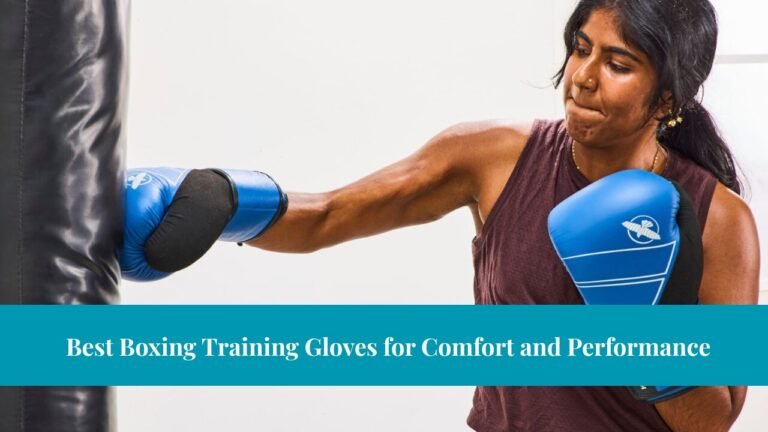When it comes to boxing, your gloves are more than just gear; they are an essential part of your training, providing protection, comfort, and performance all wrapped into one. Choosing between leather and synthetic boxing gloves may seem like a simple decision based on material preference, but in reality, it impacts every aspect of your boxing journey. The material of your gloves can influence durability, comfort, performance, hygiene, and even your long-term investment in the sport. Understanding the differences between leather and synthetic gloves is crucial whether you are stepping into the ring as a beginner or preparing for professional bouts.
In this comprehensive guide, we will explore leather and synthetic boxing gloves in depth. By examining aspects such as durability, comfort, pricing, ethical considerations, maintenance, and real-world user experiences, you will gain a clearer understanding of which type of glove best suits your needs. Our aim is to provide a resource that is not only informative but also reliable and aligned with expert insights, helping you make an informed decision before investing in your boxing equipment.
Why Glove Material Matters in Boxing
Not all boxing gloves are created equal. The material used in crafting a glove significantly influences how it performs during training and competition. Leather and synthetic materials each offer unique characteristics that affect lifespan, comfort, airflow, maintenance, and overall value. Choosing the right glove material is more than a cosmetic preference; it is a practical consideration that can impact your safety, performance, and satisfaction over time.
Leather gloves are known for their resilience and long-term durability, making them a preferred choice among professional fighters. They tend to adapt to the shape of your hand, providing a personalized fit that improves with time. On the other hand, synthetic gloves offer accessibility and affordability, making them ideal for newcomers or those who train less frequently. Recognizing the implications of each material can help you select gloves that complement your training style and goals.
Leather Boxing Gloves: Professional-Grade Craftsmanship
What Is Leather in Boxing Gloves?
Leather gloves are primarily crafted from cowhide, goatskin, or buffalo leather. These natural materials are chosen for their strength, flexibility, and long-lasting qualities. Leather is the material of choice for professional and elite athletes because it can withstand frequent impact and heavy use without losing structural integrity. The natural fibers in leather also provide breathability, reducing sweat accumulation and discomfort during extended training sessions.
Advantages of Leather Gloves
Leather gloves excel in several areas, starting with durability. Unlike synthetic alternatives, high-quality leather can last for years even under intense training conditions. This longevity makes leather gloves a wise investment for athletes who practice several times a week, participate in sparring sessions, or compete in official bouts. The gloves also mold to the shape of your hands over time, enhancing comfort and reducing hand fatigue during long training sessions.
Another key advantage is breathability. The natural pores in leather allow for better airflow, helping to minimize sweating and the development of unpleasant odors. Leather gloves are often constructed with superior padding and ergonomic design, which improves protection for your hands and wrists. Many fighters appreciate the premium feel and professional aesthetic that leather gloves provide, further enhancing the overall boxing experience.
Despite these benefits, leather gloves come with certain considerations. They are typically more expensive, ranging from $80 to over $300, which may be prohibitive for beginners or casual users. Additionally, leather requires regular maintenance, including conditioning and proper drying techniques, to preserve its quality and prevent cracking or stiffness. Finally, being animal-based products, leather gloves may not align with vegan or ethically conscious preferences.
Synthetic Boxing Gloves: Affordable and Accessible
What Materials Are Used in Synthetic Gloves?
Synthetic boxing gloves are made using man-made materials such as polyurethane (PU), vinyl, or microfiber. These materials are designed to mimic the look and feel of leather while offering a more budget-friendly alternative. Synthetic gloves are widely available and cater to a broad audience, including beginners, fitness enthusiasts, and those looking for gloves with minimal maintenance requirements.
Advantages of Synthetic Gloves
One of the most significant advantages of synthetic gloves is cost-effectiveness. They allow athletes to access quality gloves without making a substantial financial investment, with prices typically ranging from $25 to $70. Maintenance is straightforward, as synthetic gloves do not require conditioning and can be easily wiped down after each session.
Synthetic gloves are also vegan-friendly, providing an ethical alternative for athletes who avoid animal products. Their lighter weight makes them suitable for cardio boxing, fitness classes, and general conditioning workouts. Additionally, manufacturers often produce synthetic gloves in various colors and designs, appealing to a wide range of personal styles and preferences.
However, synthetic gloves have limitations. Their lifespan is generally shorter than that of leather gloves, especially under heavy or frequent use. The material does not breathe as well, which can lead to excess heat, sweat build up, and odor over time. Synthetic gloves also tend to maintain a stiffer fit and do not mold to the hand like leather, potentially reducing comfort during prolonged use.
Leather vs Synthetic Boxing Gloves: Side-by-Side Comparison
When comparing leather and synthetic gloves, several key factors emerge. Leather gloves typically last between two to five years with regular use, whereas synthetic gloves may only endure six to twelve months. Leather gloves improve in comfort over time as they conform to the hand, while synthetic gloves often maintain a static fit. In terms of maintenance, leather requires regular conditioning, whereas synthetic gloves are easy to clean and maintain. Breathability is higher in leather, while synthetic materials provide limited airflow. Leather gloves are not vegan-friendly, unlike synthetic gloves, which cater to ethical and environmental considerations. Price is another factor, with leather gloves ranging from $80 to $300 and synthetic gloves available from $25 to $70. Professionals often favor leather for training and competition, while synthetic gloves suit beginners and casual users. The weight difference also matters, as leather gloves tend to be moderate to heavy, while synthetic gloves are lightweight and better suited for cardio workouts.
Real User Insights and Case Examples
Insights from professional fighters and trainers consistently highlight the advantages of leather gloves. Renowned brands such as Winning and Cleto Reyes are often recommended due to their premium build quality and durability. These gloves are used by world champions and professional trainers alike, demonstrating their reliability in high-level training environments. Leather gloves are praised for their comfort, support, and performance, which can enhance a fighter’s technique and reduce the risk of injury.
On the other hand, synthetic gloves are popular among beginners and fitness enthusiasts who prioritize affordability and ease of use. Many gyms and boxing studios provide synthetic gloves to participants during group sessions, ensuring that clients have access to gloves without the high cost or maintenance demands of leather. For occasional users, synthetic gloves deliver sufficient protection while accommodating limited budgets and casual training schedules.
Ethical and Environmental Considerations
Leather and synthetic gloves carry different ethical and environmental implications. Leather gloves come from animal sources, which may conflict with vegan values. The production of leather also requires substantial resources, energy, and water, though the extended lifespan of high-quality leather can offset some environmental impact. Conversely, synthetic gloves are made from plastics, making them animal-friendly but potentially less sustainable if replaced frequently. For environmentally conscious athletes, the choice between leather and synthetic involves balancing ethical considerations with durability and long-term sustainability.
Maintenance Tips for Long-Lasting Gloves
Proper care is essential for extending the life of any boxing glove, regardless of material. Leather gloves benefit from a routine of wiping down after each session, air-drying immediately, and applying leather conditioner once or twice a month to maintain flexibility. Storing gloves with moisture-absorbing inserts or glove deodorizers helps prevent mold and odor buildup. Synthetic gloves require simpler maintenance, such as wiping down with a disinfectant cloth, air-drying thoroughly between uses, and using spray deodorizers to manage odor. Avoiding harsh cleaning chemicals preserves the integrity of synthetic materials. By investing time in proper care, athletes can significantly improve glove performance and longevity.
Best Brands to Consider
Several brands are widely recognized for their quality and reliability. Leather glove enthusiasts often recommend Cleto Reyes, known for handcrafted gloves made in Mexico, with prices starting at $150 and trusted by professional fighters. Winning gloves are celebrated for their premium build and protective design, widely used in professional training environments. Fairtex, based in Thailand, also offers high-quality leather gloves appreciated for durability and comfort. Among synthetic options, Ringside Apex provides affordable PU-based gloves suitable for beginners and casual users. Venum Challenger gloves are lightweight, stylish, and ideal for fitness boxing, while Everlast Pro Style gloves serve as accessible entry-level options in multiple colors.
Which One Should You Buy?
The decision between leather and synthetic gloves ultimately depends on your goals, training intensity, budget, and personal preferences. Choose leather gloves if you train multiple times per week, prepare for amateur or professional competitions, value long-term durability, prioritize comfort and breathability, and are willing to invest $100 or more. Synthetic gloves are suitable for beginners, occasional users, individuals with budget constraints, those seeking lightweight gloves for cardio or fitness-based training, and athletes who prefer vegan-friendly materials. Both options have merit, and selecting the right glove involves aligning your choice with your specific training needs.
Frequently Asked Questions
What is the major difference between leather and synthetic gloves?
The key difference lies in durability and comfort. Leather gloves last longer and conform to your hands, while synthetic gloves are budget-friendly but wear out faster.
Can beginners use leather gloves?
Yes, beginners can use leather gloves. They may be more expensive, but they offer better comfort and long-term value.
Are synthetic gloves bad for intense training?
Not necessarily, but they may not last long under daily use. For intense sparring or bag work, leather is often a better investment.
How can I tell if my gloves are genuine leather?
Real leather has a unique smell, irregular texture, and stretches slightly when pulled. Many brands also label their gloves as “genuine leather.”
Conclusion
The gloves you choose define your boxing experience. Leather gloves offer a professional-grade experience with superior durability, comfort, and protection, making them an excellent choice for serious athletes. Synthetic gloves provide an affordable, accessible, and ethical alternative for beginners, casual users, or those prioritizing vegan materials. Regardless of your choice, focus on fit, comfort, and purpose to maximize the effectiveness of your training. The right gloves not only safeguard your hands but also enhance performance, confidence, and enjoyment in the sport. For further guidance and trusted recommendations, explore Boxing Essential’s comprehensive Glove Guide, where expert insights help you make the most informed decision for your boxing journey.




